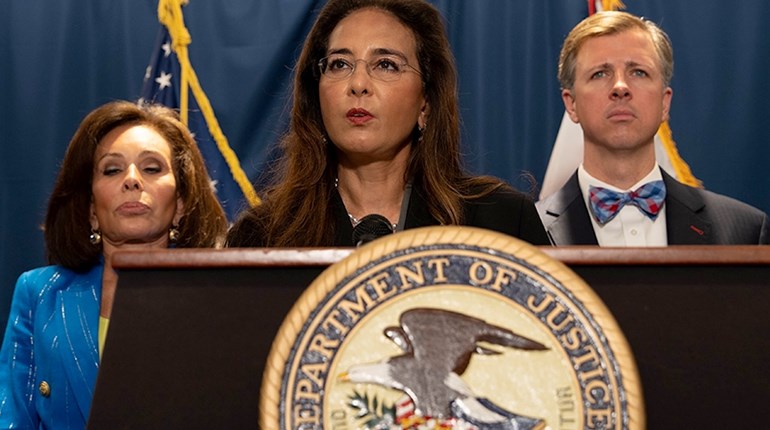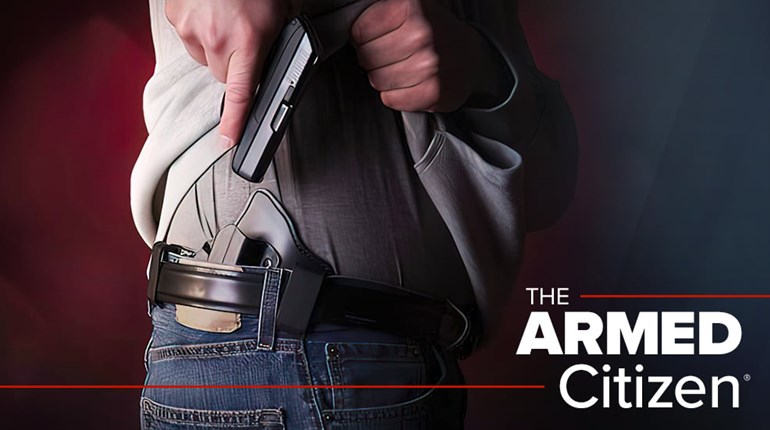
Rep. Jeff Duncan (R-S.C.) introduced the Hearing Protection Act, H.R. 95, legislation that would remove firearm suppressors from the list of definitions under the 1934 National Firearms Act (NFA). This would eliminate the extremely long wait times for approvals and the current $200 tax required to buy a suppressor (added on top of the suppressor’s cost itself).
Instead, under the HPA, what is essentially a “muffler” for a firearm would be regulated under the 1968 Gun Control Act (GCA) with the same background check that is required for a retail firearm purchase.
H.R. 95 was introduced with 36 original co-sponsors.
Actually, the HPA was reintroduced. It first appeared in the U.S. House of Representatives during the 114th Congress as H.R. 3799: Hearing Protection Act of 2015, and was introduced by Rep. Matt Salmon (R-Ariz.). Then, it transitioned into the Hearing Protection Act of 2017 (H.R. 367), sponsored by Rep. Duncan.
The bills have had bipartisan support, but they’ve also been the targets of anti-Second Amendment politicians.
Firearm suppressors are legal to own and use in 42 states—40 states allow hunters to use these devices. The HPA bills have been strongly supported by the National Rifle Association for good reasons.
As the NRA Institute for Legislative Action (ILA) noted, a position paper written and presented by the National Hearing Conservation Association (NHCA) in 2019 recognizes “the important role that firearm suppressors play in reducing hearing loss associated with firearms and endorses the Hearing Protection Act, which would eliminate the current antiquated and overly complicated process for acquiring suppressors and instead use the same instant background check system that is used for almost all firearms.”
The NHCA is an independent organization that has the mission “to prevent hearing loss due to noise and other environmental factors in all sectors of society.”
As the NHCA position paper noted: “Noise-induced hearing loss (NIHL) is a significant health problem among U.S. adults and children. Further, NIHL and tinnitus (ringing in the ears) resulting from firearm noise exposure are considerable public health concerns negatively impact the quality of life for individuals and their families in many ways: financial, social, and occupational.”
“Persons wearing conventional hearing protection are not without risk of NIHL when using firearms,” says NRA-ILA. “The noise reduction of hearing protection devices varies considerably across users and may provide significantly less protection from noise than the labeled noise reduction rating (NRR) suggests. … However, using conventional hearing protection in conjunction with a suppressor can significantly reduce the risk of NIHL more than using either device alone.”
One of the biggest hurdles the HPA has faced in the past were the vast misrepresentations suppressors have been given in the mainstream media and pop culture. As the National Shooting Sports Foundation (NSSF) noted, a suppressor doesn’t take the muzzle blast from a rifle or handgun round and reduce it to a “pfft.” That’s the stuff of spy movies and anti-gunner fantasies. Suppressors, rather, reduce the noise so it doesn’t cause immediate and irreparable hearing loss.
The American Suppressor Association (ASA) noted on its website that, according to Dr. William W. Clark, Director of the Washington University School of Medicine’s Program in Audiology and Communication Sciences, “the most-serious threat to hearing comes from recreational hunting or target shooting.”
The ASA post also said, “This is in large part due to the fact that many people choose not to use traditional hearing protection devices like earplugs and earmuffs because they want to be able to hear their surroundings. Multiple studies have found that between 70 to 80% of hunters never wear earplugs or earmuffs, and nearly half of all target shooters don’t consistently wear traditional hearing protection. Thus, it should come as no surprise that for every five years of hunting, hunters become seven percent more likely to experience high frequency hearing loss.”
But those realities didn’t stop Sen. Kirsten Gillibrand (D-N.Y.) from demonizing the HPA in 2017 by trying to associate suppressors with criminal acts. Gillibrand tweeted: “When someone gets shot by a gun with a silencer, it’s quiet. Witnesses might not hear. Police will be less likely to track down the shooter. Can you imagine if we allowed a criminal with a gun in New York City to attach a silencer to their weapon? It’d be a dangerous mistake,” and, “I’m fighting back against bills (backed by the Trump admin) that’d make it easy for criminals to buy gun silencers.”
Actually, as the NSSF reported in 2017, “The Bureau of Alcohol, Tobacco, Firearms and Explosives estimates there are 1.3 million suppressors registered in the United States. The ATF has recommended criminal charges involving suppressors in only 44 cases per year in the last decade, a rate of just .003%. Of those 44 cases per year, just 6 involved those with a criminal felony record. Suppressors are hardly the accessory of choice for criminals.”
This legislation would simply remove barriers to owning an accessory that makes recreational shooting and hunting safer for our ears.

































